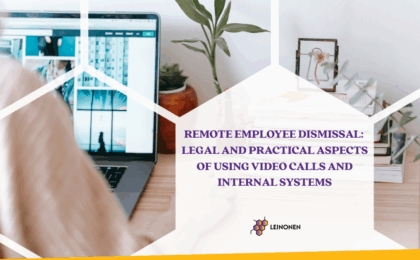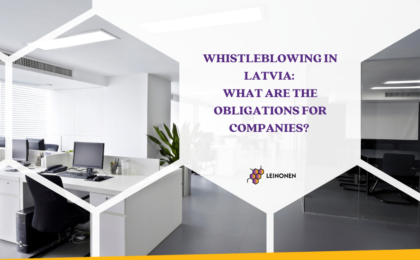The following payments to non-resident legal persons are subject to the CIT withholding:
1) remuneration from management and advisory services — 20 % of the remuneration amount;
2) remuneration from the alienation of immovable property in Latvia (including also the alienation of stock if the immovable property in Latvia or investment of the immovable property in equity capital constitutes more than 50 % of such asset value) — 3 % of the remuneration amount;
3) all payments and dividends disbursed to any person located, set up or established in low lax or tax haven countries or territories — 20 % of the remuneration amount. Except for payments regarding supply of goods and purchased public circulation securities of the European Union or European Economic Area, provided that such transactions took place at the market price;
4) remuneration from leasing or renting an immovable property in Latvia — 5 % of the remuneration amount (applicable from 12 February 2020).
What regards advisory services, it should be noted that such aspects as the substance and nature of a transaction, instead of the legal form, should be considered upon ascertaining whether the respective service is to be classified as an advisory service. For instance, provision of information on a marketing strategy, market research, development of a business plan and consultancy in the IT sector can be also regarded as advisory services.
The obligation of withholding arises when the payment of remuneration is made.
With regard to the CIT withheld from non-resident legal person, by the 20th date of the subsequent month, a taxpayer is required to submit to the State Revenue Service (hereinafter — the SRS) a report on the income gained by the non-resident and the taxes paid in the Republic of Latvia. The withheld CIT must be also paid by the referred to date. Upon request of the non-resident, it is possible to issue a certificate on the CIT withheld and paid in Latvia.
If it was necessary to withhold the CIT from the remuneration, but it was not done, the taxpayer in any case must pay the CIT. In this case the payment should be settled from the funds of the remuneration payer. Such costs of the taxpayer will be classified as costs non-related to the commercial activity whereof an additional 25 % CIT will be required to be paid.
There is an option to apply an exemption or a reduced CIT rate, if the non-resident is the resident of such country with which Latvia has not signed a tax convention for the avoidance of double taxation. To a large extent the conditions laid down in the tax convention provide for an exemption from the CIT deduction for remuneration from management and advisory services. In order to apply the exemption in accordance with the provisions of the tax convention it is necessary to receive from the non-resident legal person a residence certificate determined by the respective country and/or also a residence certificate approved by Latvia (i.e., the form indicated in Annex 1 to Cabinet Regulation No. 178). If the total remuneration amount per one non-resident in the taxation year exceeds EUR 5000, the payer must obtain a confirmation from the SRS regarding the right to apply the exemption or the reduced CIT rate.
If the remuneration amount does not exceed the referred to amount, it is not necessary to receive a confirmation from the SRS for the application of the tax exemption or reduced tax rate.
Properly drawn up documents of the residence certificate must be at the disposal of the remuneration payer by the date of submission of the CIT declaration on the last month of the reporting fiscal year. In practice, however, the payer requests to submit the respective residence certificate before paying of the remuneration. Thus avoiding any risk arising from failure to submit or delayed submission of the respective residence certificate after the remuneration payment. As an alternative, the CIT might be withheld from the remuneration amount by the moment of receipt of the residence certificate.
It should also be considered that there is a limited period for the application of an exemption, depending on the documents at the disposal of the payer. Namely, the requirements for granting an exemption could be applicable to the taxation year in which the respective documents for the application of an exemption have been issued or for a period of one year from the date of issue of such documents, or for a period of five years.
If the non-resident legal person had the right to apply the tax exemption specified in the tax convention, but the respective documents have not been drawn up at the moment of the remuneration payment, the non-resident legal person has the right to recover the CIT withheld from the SRS.
What regards payments to persons located, set up or established in low lax or tax haven countries or territories, the legislator gives the right to request an exemption from the 20 % CIT withholding. The application of an exemption must be requested from the SRS by submitting an application and explanations regarding the transaction in order to prove that the respective transaction was not made for the purpose of evading or reducing tax liabilities.
Contact Information of the Advisory Department
Should you have any questions or further information is required, please contact our tax advisers.



